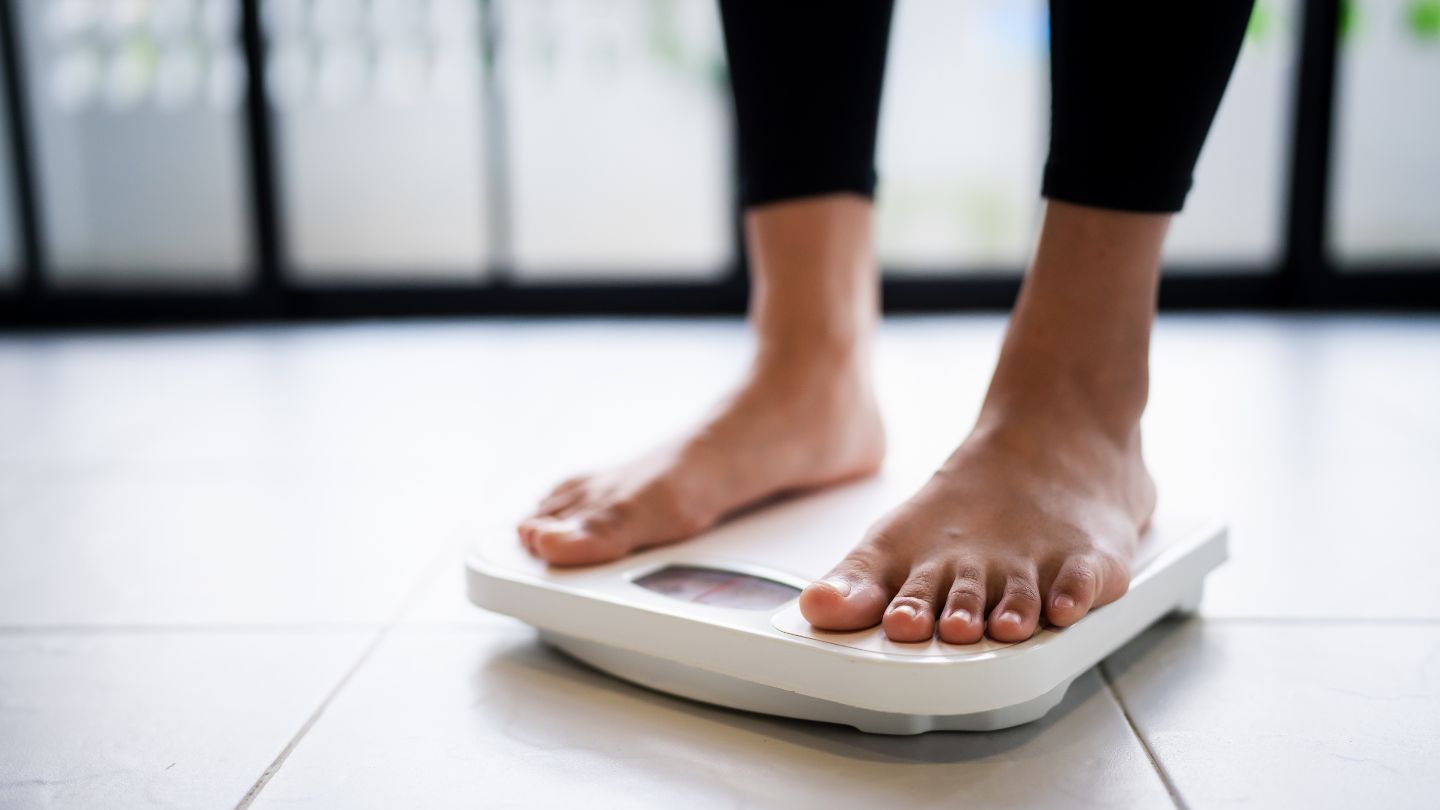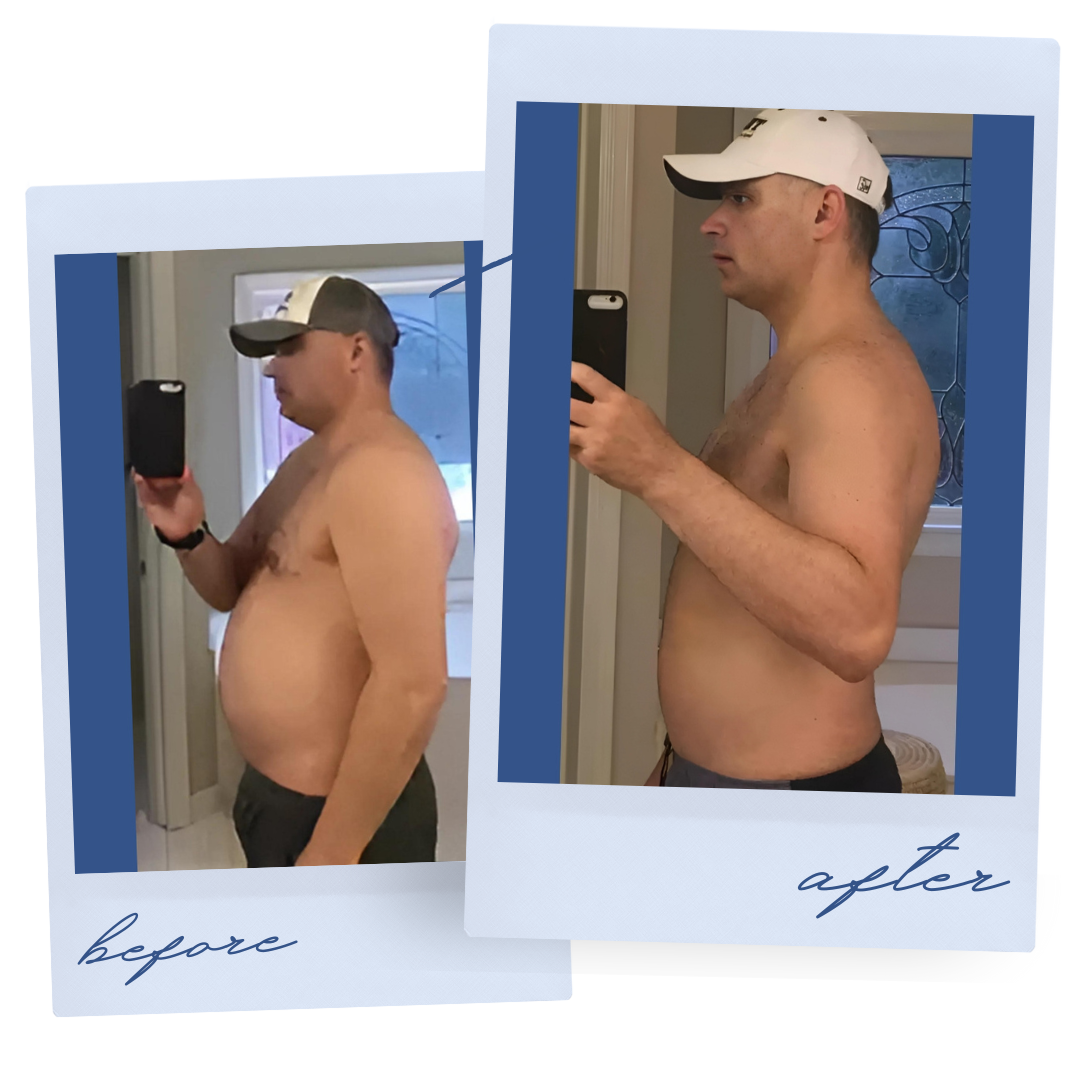Understanding the body stages of weight loss can help set realistic expectations and motivate you. Weight loss isn’t linear; it happens in stages and may include periods of rapid progress, slower changes, or even plateaus. Learning about these phases allows you to develop sustainable habits to achieve healthy, long-term results.
Key Takeaways
- Weight loss occurs in stages: rapid weight loss, gradual fat loss, and potential plateaus.
- Sustainable weight loss involves healthy habits, balanced calorie intake, and consistent exercise.
- Progress isn’t just about the scale; non-scale victories like better energy and muscle mass preservation are vital indicators.
Understanding Weight Loss
Weight loss is a complex process involving multiple stages, each with unique characteristics and challenges. It’s essential to understand that weight loss is not just about shedding pounds but also about adopting a healthier lifestyle that promotes overall well-being. The journey to lose weight can be divided into several stages, including rapid weight loss, slow weight loss, and maintenance. Each stage requires a different approach, and understanding these stages can help individuals make informed choices and stay on track.
Stages of Weight Loss
Your weight loss journey can be divided into an initial rapid phase, a gradual weight loss phase, and potential plateaus. Each stage is unique and requires different strategies to maintain progress.
Stage 1: Rapid Weight Loss Stage
During the initial rapid phase, most people experience a noticeable drop in body weight due to water weight loss. This happens when your body depletes glycogen stores bound to water in muscles and the liver.
Key Points to Remember:
- You may lose several pounds within the first few weeks.
- Focus on staying hydrated to avoid water retention.
- Build sustainable habits like eating whole grains and lean protein and incorporating resistance training.
Avoid crash diets. Instead, focus on creating a calorie deficit through balanced eating and exercise, ensuring you lay the foundation for long-term success.
Stage 2: Gradual Weight Loss
After the rapid weight loss stage, weight loss slows as the body begins burning fat more efficiently. This stage emphasizes fat loss over water weight. Focusing on balanced nutrition and regular physical activity is crucial to ensure healthy weight loss during this phase.
How to Succeed During Gradual Weight Loss:
- Maintain a steady calorie deficit of 500–1000 calories daily.
- Include strength training to build muscle while losing fat.
- Focus on nutritious snacks like fruits, vegetables, and healthy fats to maintain energy levels.
Progress during this phase is often slower but more sustainable. Losing 1–2 pounds per week is considered healthy and achievable.
Stage 3: Weight Loss Plateaus
A weight loss plateau can occur as your body adapts to a lower calorie intake and reduced body weight. While frustrating, it’s a normal part of the process.
Tips to Break Through Plateaus:
- Add cardio or high-intensity interval training (HIIT) to adjust your exercise routine.
- Slightly modify your diet by increasing protein intake to preserve muscle mass.
- Incorporate resistance training to rev up your metabolism.
Remember, your body’s timeline is unique. Be patient and continue practicing healthy habits.
Fat Loss vs. Weight Loss: What’s the Difference?
Not all weight loss is the same. Fat loss reduces fat while maintaining muscle mass, leading to a healthier body composition. In contrast, weight loss may include water or muscle loss.
Tips for Prioritizing Fat Loss:
- Consume a high-protein diet to support muscle retention.
- Incorporate resistance training to build muscle while burning fat.
- Track progress using body fat measurements rather than just the scale.
Long-Term Weight Maintenance
Reaching your goal weight is just the beginning. Long-term weight maintenance requires an ongoing commitment to healthy habits and mindful choices.
Steps to Sustain Weight Loss:
- Exercise regularly, aiming for at least 150 minutes of moderate activity weekly.
- Eat balanced meals, including whole grains, lean proteins, and healthy fats.
- Monitor your progress and celebrate non-scale victories like improved energy and fitness.
Realistic Expectations
When it comes to losing weight, it’s essential to have realistic expectations. Rapid weight loss is not always sustainable, and it’s not uncommon for individuals to experience weight loss plateaus. Aiming for a gradual weight loss of 1-2 pounds per week is a more realistic and sustainable goal. It’s also important to remember that not all weight loss is fat loss. Water weight, muscle mass, and other factors can influence the number on the scale, making it essential to focus on healthy habits rather than just the number on the scale.
Non-Scale Victories
While the number on the scale can be a motivating factor, it’s also essential to focus on non-scale victories (NSVs). NSVs are the positive changes during the weight loss journey, such as increased energy levels, improved mood, and better overall health. Celebrating NSVs can help individuals stay motivated and focused on their goals, even when the number on the scale doesn’t change. Some examples of NSVs include:
- Increased energy levels
- Improved mood
- Better sleep quality
- Increased strength and endurance
- Improved overall health
How to Optimize Your Weight Loss Journey
Here are simple yet effective ways to navigate the stages of weight loss:
- Set Realistic Goals: Progress may sometimes slow, but steady changes lead to lasting results.
- Track Your Intake: Monitoring calorie intake ensures you maintain a calorie deficit.
- Stay Flexible: Adjust your routine as needed, whether through diet or exercise intensity changes.
- Celebrate Progress: Recognize signs like better energy levels, improved strength, or how your clothes fit better.
- Focus on Healthy Weight Loss: Emphasize balanced nutrition, regular physical activity, and mindful eating habits to shed pounds sustainably without compromising overall health.
Common Mistakes to Avoid
Regarding weight loss, there are several common mistakes to avoid. These include:
- Crash dieting: Severely restricting calorie intake can lead to rapid weight loss, but it’s not sustainable and can result in muscle loss and other adverse health consequences.
- Overexercising: While regular exercise is essential for weight loss, overexercising can lead to burnout and injury.
- Not getting enough sleep: Poor sleep quality can disrupt hunger hormones, leading to overeating and weight gain.
- Not staying hydrated: Inadequate hydration can lead to fatigue, headaches, and other adverse health consequences.
Summary
Weight loss is a journey that progresses through various stages, from the initial rapid weight loss to gradual fat loss and inevitable plateaus. You can effectively reach your goals by understanding these phases and focusing on sustainable habits like strength training and healthy eating.
At Atlanta Medical Institute, we are committed to supporting your weight loss journey with personalized programs tailored to meet your unique needs. Whether you’re just starting or working to overcome a plateau, our expert team guides you every step of the way. We offer weight loss shots in Atlanta to enhance your progress and ensure you achieve lasting results. Contact us today to begin your transformation!
Frequently Asked Questions
How can I break through a weight loss plateau?
Modify your routine by adding resistance training or adjusting calorie intake. Consult our experts for personalized strategies.
What is sustainable weight loss?
Sustainable weight loss is losing 1–2 pounds per week through healthy habits, such as balanced eating, regular exercise, and realistic goal-setting.







